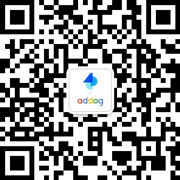本案例默认翻译为中文,点击可切换回原语言
已切换成原语言,点击可翻译成中文
行星或塑料
案例简介:背景 我们的星球正面临一场巨大的流行病。每年,900万吨塑料废物最终进入海洋。一些估计表明,这种塑料可能会在海洋环境中保留 450 年或更长时间,问题只会越来越严重。 作为一个拥有丰富科学发现和探索历史的全球性组织,《国家地理》决定是时候就这个重要问题展开对话了。因为,除非我们现在采取行动,否则塑料垃圾危机将定义我们这一代人,并对我们所知道的唯一的家园地球造成不可挽回的损害。 2018 年 5 月,《国家地理》推出了它的星球还是塑料?主动要求消费者做出选择: 选择地球而不是一次性塑料。 为了最大限度地扩大影响,国家地理将目光直接放在社交媒体上。从标签 (# PlanetOrPlastic) 到影响者外联,再到互动挑战,一切都在网上脱颖而出。 描述创意 (30% 的选票) 我们知道我们需要帮助人们意识到他们选择的后果。如果消费者只是在行为上做一些小的改变,就可以获得真正的影响: 选择纸袋或自带纸袋,使用可重复使用的水瓶或拒绝餐馆和其他机构提供的吸管。所以,我们集中精力创建一个尖锐的竞选路线,把事情联系在一起。足够短的东西可以分享,但足够有意义,可以有所作为。 我们最终决定重新解释杂货店收银台的一个常见问题: “纸还是塑料?” 虽然这似乎是一个关于消费者偏好的简单问题,但选择 “塑料” 或购买一次性塑料对我们的星球有可怕的后果。 因此,“纸还是塑料?” 变成了 “行星还是塑料?” 方便的问题变成了良心的问题。 描述策略 (20% 的选票) 为了实现最大的变化,人们需要感觉到他们有代理。因此,我们试图找到一种方式来传达问题的严重性,同时鼓励和增强人们为解决方案做出贡献的能力。因为塑料危机不是一个污染者,甚至不是一个公司的结果。这是消费者每天做出数百万决定的结果。每次我们选择一次性塑料的便利性,我们都将地球置于危险之中。我们建立了体验元素,以说服消费者改变他们的行为,并做出更好的选择。 描述执行情况 (20% 的选票) 2018 年 5 月 16 日,《国家地理》全球推出其星球还是塑料?该倡议旨在提高对全球塑料危机的认识,减少到达世界海洋的塑料数量。我们首次推出了一份关于这个问题的深度原创报道的完整杂志,并立即让人们在社交媒体上谈论。 一个病毒 # PlanetOrPlastic标签在第一周内被分享了 1,000,000 多次。像艾伦·德杰尼勒斯、瑞茜 · 威瑟斯彭、布莱恩 · 克兰斯顿和更多人这样的名人和影响者加入了这个行动,扩大了我们的信息,并为对话做出了贡献。 国家地理在电视、推特、Instagram、脸书、Snapchat、Reddit、Wattpad、Digital、OHH和许多其他媒体频道继续开展这项活动。我们还推出了体验式营销执行,如定制的星球或塑料?承诺 (要求观众承诺减少一次性塑料的使用) 和YourShot摄影挑战。我们看到了大量的原始内容,由我们的追随者提交。 列出结果 (30% 的选票) 由于行星还是塑料?倡议,世界各地的人们已经开始重新考虑他们的选择,并承诺遏制他们的一次性塑料的使用。对于许多消费者来说,行星还是塑料?已经成为一个咒语,也是做出更好选择的有益提醒。# PlanetOrPlastic已经成为网上宣传的口号。从病毒传播的第一周,看到 # PlanetOrPlastic标签被分享了 1,000,000 多次,到今天,国家地理已经阻止了超过 200,000,000 件一次性塑料进入我们的海洋 (这里最新的抵押数字),超过 400 家公司已经改变了他们关于一次性塑料的政策。此外,20 多个国家已经推出了行星还是塑料?消费者意识运动,真正在全球范围内扩大信息。
行星或塑料
案例简介:Background Our planet is facing a monumental epidemic. Each year, 9 million tons of plastic waste ends up in the ocean. Some estimates suggest this plastic could remain in marine environments for 450 years or longer, and the problem is only getting worse. As a global organization with a rich history of scientific discovery and exploration, National Geographic decided it was time to start a conversation about this important issue. Because, unless we act now, the plastic waste crisis will define our generation and cause irreparable damage the only home planet we have ever known. In May 2018, National Geographic launched its Planet or Plastic? initiative asking consumers to make a choice: choose the planet over single-use plastic. To maximize impact, National Geographic set its sights squarely on social media. Everything from the hashtag (#PlanetOrPlastic), to the influencer outreach, to the interactive challenges, were built to be a standout online. Describe the creative idea (30% of vote) We knew we needed to help people realize the consequences of their choices. Real impact can be achieved if consumers simply make small changes in behavior: choosing a paper bag or bringing your own, using a reusable water bottle or refusing straws offered at restaurants and other establishments. So, we focused our efforts on creating a poignant campaign line, to tie things together. Something short enough to be shared but meaningful enough to make a difference. We ultimately decided to reinterpret a common question from grocery store checkout counters: “Paper or plastic?” While it appears to be a simple question about consumer preference, choosing “plastic” or buying single-use plastics has dire consequences for our planet. Thus, “Paper or plastic?” became “Planet or plastic?” and a question of convenience became a question of conscience. Describe the strategy (20% of vote) In order to effect the greatest change, people need to feel they have agency. As a result, we sought to find a way to communicate the severity of the issue, while encouraging and empowering people to contribute to the solution. Because the plastic crisis isn’t the result of one single polluter, or even one single company. It’s the result of millions and millions of decisions made by consumers, every single day. Every time we choose the convenience of single-use plastics, we put the planet at risk. We built out experiential elements in order to persuade consumers to change their behavior, and to make a better choice. Describe the execution (20% of vote) On May 16, 2018, National Geographic globally launched its Planet or Plastic? The initiative, aimed at raising awareness about the global plastic crisis and reducing the amount of plastic reaching the world’s oceans. We debuted a full magazine of in-depth, original reporting on the issue and immediately got people talking on social media. A viral #PlanetOrPlastic hashtag was shared over 1,000,000 times within the first week. Celebrities and influencers like Ellen DeGeneres, Reese Witherspoon, Bryan Cranston, and more jumped in on the action, amplifying our message, and contributing to the conversation. National Geographic continued the campaign on TV, Twitter, Instagram, Facebook, Snapchat, Reddit, Wattpad, Digital, OHH, and many other media channels. We also launched experiential marketing executions, like a customized Planet or Plastic? pledge (asking audiences to commit to reducing their use of single-use plastic) and YourShot photography challenges. We saw a deluge of original content, submitted by our followers. List the results (30% of vote) As a result of the Planet or Plastic? The initiative, people all over the world have started to reconsider their choices and pledged to curb their single-use plastic usage. For many consumers, Planet or Plastic? has become a mantra, and a helpful reminder to make better choices. And #PlanetOrPlastic has become a rallying cry for advocacy online. From a viral first week, which saw the #PlanetOrPlastic hashtag shared over 1,000,000 times, to today, National Geographic has prevented more than 200,000,000 pieces of single-use plastic from entering our ocean (latest pledge numbers here), and over 400 companies have changed their policies regarding single-use plastics. Additionally, more than 20 countries have since launched Planet or Plastic? consumer awareness campaigns, truly amplifying the message on a global scale.
Planet or Plastic
案例简介:背景 我们的星球正面临一场巨大的流行病。每年,900万吨塑料废物最终进入海洋。一些估计表明,这种塑料可能会在海洋环境中保留 450 年或更长时间,问题只会越来越严重。 作为一个拥有丰富科学发现和探索历史的全球性组织,《国家地理》决定是时候就这个重要问题展开对话了。因为,除非我们现在采取行动,否则塑料垃圾危机将定义我们这一代人,并对我们所知道的唯一的家园地球造成不可挽回的损害。 2018 年 5 月,《国家地理》推出了它的星球还是塑料?主动要求消费者做出选择: 选择地球而不是一次性塑料。 为了最大限度地扩大影响,国家地理将目光直接放在社交媒体上。从标签 (# PlanetOrPlastic) 到影响者外联,再到互动挑战,一切都在网上脱颖而出。 描述创意 (30% 的选票) 我们知道我们需要帮助人们意识到他们选择的后果。如果消费者只是在行为上做一些小的改变,就可以获得真正的影响: 选择纸袋或自带纸袋,使用可重复使用的水瓶或拒绝餐馆和其他机构提供的吸管。所以,我们集中精力创建一个尖锐的竞选路线,把事情联系在一起。足够短的东西可以分享,但足够有意义,可以有所作为。 我们最终决定重新解释杂货店收银台的一个常见问题: “纸还是塑料?” 虽然这似乎是一个关于消费者偏好的简单问题,但选择 “塑料” 或购买一次性塑料对我们的星球有可怕的后果。 因此,“纸还是塑料?” 变成了 “行星还是塑料?” 方便的问题变成了良心的问题。 描述策略 (20% 的选票) 为了实现最大的变化,人们需要感觉到他们有代理。因此,我们试图找到一种方式来传达问题的严重性,同时鼓励和增强人们为解决方案做出贡献的能力。因为塑料危机不是一个污染者,甚至不是一个公司的结果。这是消费者每天做出数百万决定的结果。每次我们选择一次性塑料的便利性,我们都将地球置于危险之中。我们建立了体验元素,以说服消费者改变他们的行为,并做出更好的选择。 描述执行情况 (20% 的选票) 2018 年 5 月 16 日,《国家地理》全球推出其星球还是塑料?该倡议旨在提高对全球塑料危机的认识,减少到达世界海洋的塑料数量。我们首次推出了一份关于这个问题的深度原创报道的完整杂志,并立即让人们在社交媒体上谈论。 一个病毒 # PlanetOrPlastic标签在第一周内被分享了 1,000,000 多次。像艾伦·德杰尼勒斯、瑞茜 · 威瑟斯彭、布莱恩 · 克兰斯顿和更多人这样的名人和影响者加入了这个行动,扩大了我们的信息,并为对话做出了贡献。 国家地理在电视、推特、Instagram、脸书、Snapchat、Reddit、Wattpad、Digital、OHH和许多其他媒体频道继续开展这项活动。我们还推出了体验式营销执行,如定制的星球或塑料?承诺 (要求观众承诺减少一次性塑料的使用) 和YourShot摄影挑战。我们看到了大量的原始内容,由我们的追随者提交。 列出结果 (30% 的选票) 由于行星还是塑料?倡议,世界各地的人们已经开始重新考虑他们的选择,并承诺遏制他们的一次性塑料的使用。对于许多消费者来说,行星还是塑料?已经成为一个咒语,也是做出更好选择的有益提醒。# PlanetOrPlastic已经成为网上宣传的口号。从病毒传播的第一周,看到 # PlanetOrPlastic标签被分享了 1,000,000 多次,到今天,国家地理已经阻止了超过 200,000,000 件一次性塑料进入我们的海洋 (这里最新的抵押数字),超过 400 家公司已经改变了他们关于一次性塑料的政策。此外,20 多个国家已经推出了行星还是塑料?消费者意识运动,真正在全球范围内扩大信息。
Planet or Plastic
案例简介:Background Our planet is facing a monumental epidemic. Each year, 9 million tons of plastic waste ends up in the ocean. Some estimates suggest this plastic could remain in marine environments for 450 years or longer, and the problem is only getting worse. As a global organization with a rich history of scientific discovery and exploration, National Geographic decided it was time to start a conversation about this important issue. Because, unless we act now, the plastic waste crisis will define our generation and cause irreparable damage the only home planet we have ever known. In May 2018, National Geographic launched its Planet or Plastic? initiative asking consumers to make a choice: choose the planet over single-use plastic. To maximize impact, National Geographic set its sights squarely on social media. Everything from the hashtag (#PlanetOrPlastic), to the influencer outreach, to the interactive challenges, were built to be a standout online. Describe the creative idea (30% of vote) We knew we needed to help people realize the consequences of their choices. Real impact can be achieved if consumers simply make small changes in behavior: choosing a paper bag or bringing your own, using a reusable water bottle or refusing straws offered at restaurants and other establishments. So, we focused our efforts on creating a poignant campaign line, to tie things together. Something short enough to be shared but meaningful enough to make a difference. We ultimately decided to reinterpret a common question from grocery store checkout counters: “Paper or plastic?” While it appears to be a simple question about consumer preference, choosing “plastic” or buying single-use plastics has dire consequences for our planet. Thus, “Paper or plastic?” became “Planet or plastic?” and a question of convenience became a question of conscience. Describe the strategy (20% of vote) In order to effect the greatest change, people need to feel they have agency. As a result, we sought to find a way to communicate the severity of the issue, while encouraging and empowering people to contribute to the solution. Because the plastic crisis isn’t the result of one single polluter, or even one single company. It’s the result of millions and millions of decisions made by consumers, every single day. Every time we choose the convenience of single-use plastics, we put the planet at risk. We built out experiential elements in order to persuade consumers to change their behavior, and to make a better choice. Describe the execution (20% of vote) On May 16, 2018, National Geographic globally launched its Planet or Plastic? The initiative, aimed at raising awareness about the global plastic crisis and reducing the amount of plastic reaching the world’s oceans. We debuted a full magazine of in-depth, original reporting on the issue and immediately got people talking on social media. A viral #PlanetOrPlastic hashtag was shared over 1,000,000 times within the first week. Celebrities and influencers like Ellen DeGeneres, Reese Witherspoon, Bryan Cranston, and more jumped in on the action, amplifying our message, and contributing to the conversation. National Geographic continued the campaign on TV, Twitter, Instagram, Facebook, Snapchat, Reddit, Wattpad, Digital, OHH, and many other media channels. We also launched experiential marketing executions, like a customized Planet or Plastic? pledge (asking audiences to commit to reducing their use of single-use plastic) and YourShot photography challenges. We saw a deluge of original content, submitted by our followers. List the results (30% of vote) As a result of the Planet or Plastic? The initiative, people all over the world have started to reconsider their choices and pledged to curb their single-use plastic usage. For many consumers, Planet or Plastic? has become a mantra, and a helpful reminder to make better choices. And #PlanetOrPlastic has become a rallying cry for advocacy online. From a viral first week, which saw the #PlanetOrPlastic hashtag shared over 1,000,000 times, to today, National Geographic has prevented more than 200,000,000 pieces of single-use plastic from entering our ocean (latest pledge numbers here), and over 400 companies have changed their policies regarding single-use plastics. Additionally, more than 20 countries have since launched Planet or Plastic? consumer awareness campaigns, truly amplifying the message on a global scale.
行星或塑料
暂无简介
Planet or Plastic
暂无简介
基本信息
- 广告战役: #国家地理杂志-设计与品牌-bf73#
- 广告品牌: 国家地理
- 发布日期: 2020
- 行业领域: 互联网服务 , 社交媒体
- 媒体类别: 海报/平面
- 广告语言: 英语
- 媒介平台: 网络
- 获得奖项:
暂无评分
已有{{caseInfo.tatolPeople}}人评分
创作者
案例详情
涵盖全球100万精选案例,涉及2800个行业,包含63000个品牌
热门节日97个,23个维度智能搜索
-

项目比稿
品类案例按时间展现,借鉴同品牌策略,比稿提案轻松中标
-

创意策划
任意搜索品牌关键词,脑洞创意策划1秒呈现
-

竞品调研
一键搜索竞品往年广告,一眼掌握对手市场定位
-

行业研究
热词查看洞悉爆点,抢占行业趋势红利
登录后查看全部案例信息
如果您是本案的创作者或参与者 可对信息进行完善







